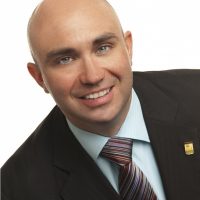We already know that life is already overwhelming with too many distractions. Take the iPhone, last I heard, there are around 1.96 Million apps available. 1.96 Million new choices. 1.96 Million new decisions. Just what we want: more.
When I was growing up there weren’t many choices for my feet. Now, there are shoes for running, tennis, hiking, basketball, volleyball, racquetball, golf, and walking… on Sunday… with your dog… in the rain. Cola with caffeine, with or without flavoring, with or without taste, etc. The average store in 1986 had 10,000 items. In 2000, it was 60,000.
How about the most significant areas of life: health, family, wealth? What happens when there are too many choices?
One of my favorite conversations with others is about their passions. When passion is applied, ordinary circumstances deliver extraordinary results. With passion it turns potential into possibility, possibility into purpose and purpose into passion. Nothing great happens until someone becomes passionate about something.
What are you passionate about? It is our passion connected to a goal that turns the ordinary into the extraordinary.
The common denominator among successful individuals I have met over the course of my life is they are very clear about their why: why they do what they do. When you are clear on your personal why, you will find the how to do what you need to do.
We all make choices each and every day of our lives that go to affect everyone and everything around us. We make choices in our words and our actions and although we live in an ocean of words and actions we rarely acknowledge their power to uplift or put down, to inspire or discourage, to help or hurt. But in all of our choices we have the power to change lives both on our own and those around us.
The lesson I have understood so far in my life have affirmed my belief that our purpose of being is to follow our joy, seek our passions and live our lives as inspirations to each other. Everything else flows from that. When we find the inspiration, it is our duty to take action for ourselves and our communities. No one can guarantee a rosy or a perfect future but together we can help accomplish two things: to improve the current situation and to build a better, more secure tomorrow.
While the Law of Attraction gets a lot of attention the concept has been around for centuries and has been known by great minds throughout history. According to The Secret , there’s evidence that the law of attraction was used by Beethoven, Einstein and even Jesus, but you’ve also used it in your own life whether you’re aware of it or not. This is because the Law of Attraction works whether or not you’re aware of it.
The Law of Attraction states that you create your own reality. What you focus on, what you emote about, is what you draw into your life. What you believe will happen in your life is what does happen. This isn’t as simple as it seems, however, or everyone would have the lives that they want naturally. For example, people who are in debt and continually tell themselves, “I need more money,” don’t find more money, they continue to “need more money” because that is the reality that they create.
Many people wonder why this works, and there are more than one explanation. Many people believe that the Law of Attraction works by aligning God or the Universe with our wishes. We are all made of energy, and our energy operates at different frequencies. We can change our frequency of energy with positive thoughts, especially gratitude for what we already have. By using grateful, positive thoughts and feelings and by focusing on our dreams (rather than our frustrations), we can change the frequency of our energy, and the law of attraction brings positive things (things of that frequency) into our lives. What we attract depends on where and how we focus our attention, but we must believe that it’s already ours, or soon will be.
If you’re one who needs things to be a little more easy to prove, there is also a different explanation for how the law of attraction works. By focusing on attaining a new reality, and by believing it is possible, we tend to take more risks, notice more opportunities, and open ourselves up to new possibilities.
Conversely, when we don’t believe that something is in the realm of possibilities for us, we tend to let opportunities pass by unnoticed. When we believe we don’t deserve good things, we behave in ways that sabotage our chances at happiness. By changing our self talk and feelings about life, we reverse the negative patterns in our lives and create more positive, productive and healthy ones. One good thing leads to another, and the direction of a life can shift from a downward spiral to an upward ascent.
Whatever the underlying reason, reams of anecdotal evidence confirm that the law of attraction works. And, for those science-minded folks out there, research does seem to support the positive effects of the Law of Attraction as well. For example, research on optimism shows that optimists enjoy better health, greater happiness, and more success in life. One of the foundations of therapy is that changing your self-talk can change your life in a positive direction.
One problem I have with some interpretations of the Law of Attraction, is that it’s the belief we hold that good things will come to us that will bring us all that we desire, without any sort of action behind that belief. Studies on optimists show that it is the optimistic viewpoint that drives the proactive behaviors that in turn bring optimists such great results in their lives. Optimists don’t receive their benefits from their attitudes alone – their attitudes inspire the behavior that creates real change.
We can’t always control our circumstances, but we can control our responses to them. In this vein, the Law of Attraction can provide the optimism and proactive attitude that’s associated with resilience in difficult situations, but must not be used as a tool of self-blame. Our responses to the challenges we face can make us stronger in the end, and the Law of Attraction can be used for that end, but should not be applied negatively, or it can be more destructive than helpful.












Read 0 comments and reply